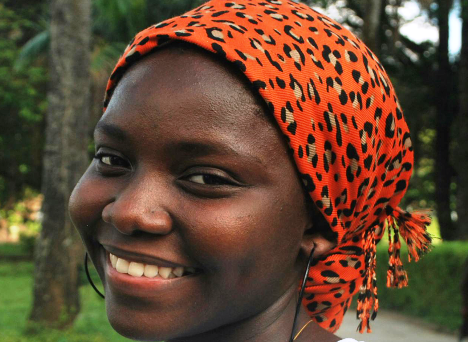
Now in its fifth year , the WEF-K is the ground zero for women’s economic emancipation connecting women to financial opportunities for growth and impact and building wealth for women from the bottom up. The forum aims to be a crucial part of the worthwhile journey towards an inclusive economic engine that will produce substantive gains for the national economy. The first two forums were held virtually due to the COVID-19 pandemic, but since 2023 the forum has been and will continue to be a hybrid event featuring a combination of in-person and virtual participation.
In the preceding years of 2021, 2022, 2023 and 2024 our forums have garnered notable engagements and piqued significant interest among targeted stakeholders. To date, our hybrid conferences have had a total direct reach of 22,837 and a total indirect reach of 15Million+ drawn from 22 countries globally.
The theme for this year’s forum is “What Works for Women’s Economic Empowerment”
The Women’s Economic Forum 2025 is being organised in partnership with the Women’s Economic Empowerment Hub (WEE Hub) of the University of Nairobi and the collaboration of other key stakeholders including the Center for Rights Education and Awareness (CREAW) and The Institute for Social Accountability (TISA) among others. This year’s forum will, among other things, present the research findings and approaches gleaned over the four years of the Women’s Economic Empowerment-WEE project that the WEE Hub have carried out with CRAWN Trust and other partners as well as provide a platform to highlight some of the challenges that women in the MSME space in the spaces of their engagement.
The forum will also showcase the impact of the interventions made as proof of what work towards empowering women economically and share the documented challenges and bottlenecks that need to be addressed in the journey to women’s economic empowerment and emancipation in Kenya. Under the theme of “What Works for Women’s Economic Empowerment,” the forum will lay emphasis on the importance of identifying effective strategies that can be implemented at scale, to enhance women’s access to economic opportunities for their empowerment. Kenya stands at a pivotal moment where the economic landscape presents both real challenges and untapped opportunities for women and the aim of the forum will be to show viable options for the way forward.
Policy Context
Kenya enacted several key policies documents to guide national development over the five-year periods that have laid a foundation and created an enabling environment for the economic empowerment of women in different aspects. These include the Economic, Recovery Strategy for Wealth Creation the Poverty Reduction Strategy Paper (PRSP), the National Development plans and the Medium-Term Expenditure Framework (MTEF), all of which have incorporated gender issues in nearly all sectors of the economy. In addition, there is the National Policy on Gender and Development, whose overall objective is to facilitate the mainstreaming of the needs and concerns of men, women, boys and girls in all areas in the development process in the country. The country’s Vision 2030, the main development blueprint, has gender equality as one of the key issues with gender monitoring indicators in its flagship projects. These policies call for the concerted efforts of all actors, including the government, private sector, and civil society, to ensure their implementation and success. Kenya has integrated the SDGs into its national and county-level policy documents and has reiterated its commitment to SDG 5 on gender equality, include strengthening legal frameworks, reducing gender-based violence, and increasing women’s participation in leadership roles.
More recently, the State Department of Gender and Affirmative Action is working to enact a Care policy which will work towards integrating care work into national development plans and emphasizes gender equality and social protection as well as commenced work on a Women’s Economic Empowerment policy. These policies and strategies aim to create an enabling environment for women in MSMEs, promoting their economic empowerment and contributing to Kenya’s overall development.
The Goal of the Conference
• To share researched data on what works for women’s economic empowerment
• To showcase real interventions that have worked and can be replicated at scale for women’s economic empowerment
• Convene high ranking government officials, private sector, non-state actors, development partners, thought leaders, women’s rights organisations, media and academia, to discuss on what more can be done to unlock the potential in women for their economic empowerment and overall productivity
• Bring unique Women’s Economic Empowerment issues that policy makers and other key players may not have considered consideration.
It is expected that discussions will lead to:
• Tangible and actionable interventions that will enable women’s contribution to productivity and growth in Kenya’s GDP, implying favourable returns at personal and communal levels and in Kenya’s economy.
• Inform government intervention’s in enhancing the participation and contribution of women to the economy.
The WEF-K aspires to be a trustworthy partner and to achieve better and tangible results for its target groups and Kenya as a whole.
The one-day hybrid in-person and virtual event will include keynote addresses, power talks, showcase women-led innovations, advocate for policy reformations and negotiate for space and voice in women’s economic and business leadership.
The WEF-K 2025 aims to be a transformative platform that brings together diverse voices and innovative solutions. By sharing best practices, fostering collaboration, and advocating for policies that support women’s economic participation, we can create a more inclusive and equitable world. This forum is not just an event but a movement towards sustainable development and gender equality. Together, we can unlock the full potential of women and drive economic growth that benefits everyone. Let’s commit to making a lasting impact and ensuring that women’s economic empowerment is at the forefront of global agendas.
